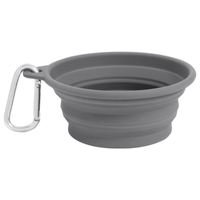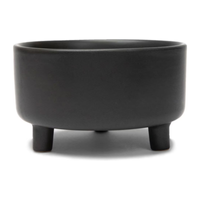Should I feed my dog homemade puppy food? A vet weighs in
Homemade puppy food is controversial - here’s how to make it work for your pooch (including guidance from a vet).
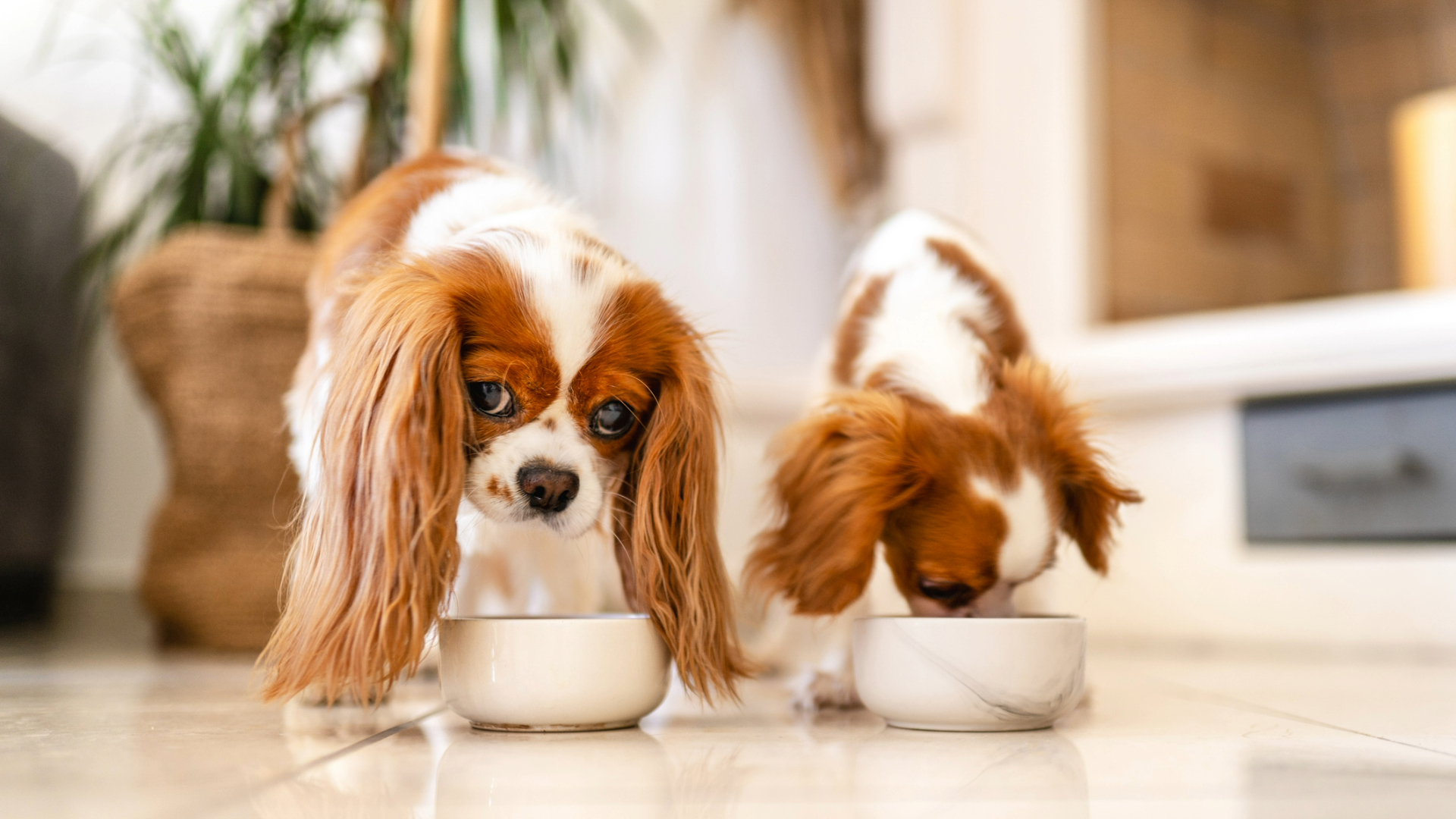
If you’re interested in giving homemade puppy food a go, then you’ve come to the right place. There’s nothing better than a home-cooked meal, so it’s no wonder you want to give that same experience to your beloved furry friend. Not only can it work out cheaper for you, but it also gives you peace of mind knowing exactly what they’re eating.
Head to a store and you can easily buy the best puppy food, containing everything your pooch needs to thrive. However, if you’ve got some time on your hands and are keen to make it yourself, there are a few things you need to consider before getting started.
As all pet parents will know, there’s lots to think about when getting a new puppy - like ensuring they have the best puppy toys for mental stimulation and giving them all the nutrients they need to stay healthy. But we’re here to help you along the way and make that journey a little bit easier for you.
Homemade puppy food requires more time and research than regular food, so you want to make sure that it’s worth the trouble. It's important to know that puppies have specific dietary requirements, like getting a sufficient amount of calories, vitamins, and minerals. Their diet needs to be complete and balanced, which is why it’s important to consult your vet first.
If you want to learn more about homemade puppy food and get some recipe inspiration, then keep on reading. We also asked vet Dr Joanna Woodnutt for her expertise and thoughts on this diet.

After graduating as a veterinarian from the University of Nottingham, Dr Joanna Woodnutt went on to practice companion animal medicine in the Midlands, UK. Dr Woodnutt is specifically interested in consulting and helping her clients understand their pets better, whether it’s around medical problems such as dermatology, behavior, and nutrition.
Do vets recommend homemade puppy food?
If you are thinking about putting your little one on a homemade puppy food diet, you really should consult your vet first. As Dr Joanna Woodnutt, a qualified vet said it's really not recommended to home-cook for a puppy.
Nutrition is never more essential than when your puppy is still growing, as the balance of nutrients needs to be perfect for optimum growth. She provides scientific research as her evidence, "Unfortunately, home cooking is very unlikely to get these nutrients correctly balanced. According to the Journal of the American Veterinary Association,95% of homemade dog food recipes didn’t provide the correct nutrients for adult dogs – and since puppies require more nutrients, it stands to reason that none of these recipes would be suitable for puppies either. According to the Journal of Nutritional Science ,every single diet they tested was deficient in nutrients."
Woodnutt shares that it’s not a good idea to make your own food for a puppy due to the risk of nutritional deficiencies, which can and do cause lasting clinical problems or even require euthanasia. Instead, feeding a food specially formulated for growth (i.e designed for puppies) is recommended – using a large-breed version if your dog is expected to be large is also important.
If you really want to cook food for your puppy at home, make sure it’s never more than 10% of your dog’s daily calorie allowance to ensure you aren’t unbalancing their main diet. Don’t forget that 10% is for everything outside of your dog’s usual food – that means if you’re using training treats or dental sticks, they're also included in the 10% and reduce the amount of homecooked food you can feed your dog further.
She adds, "If pet parents REALLY REALLY want to feed homecooked food, they need to work one-on-one with a board-certified veterinary nutritionist to ensure their food is safe and correctly balanced."
If you’re thinking of making the transition, read our guide on how to change a puppy’s food.
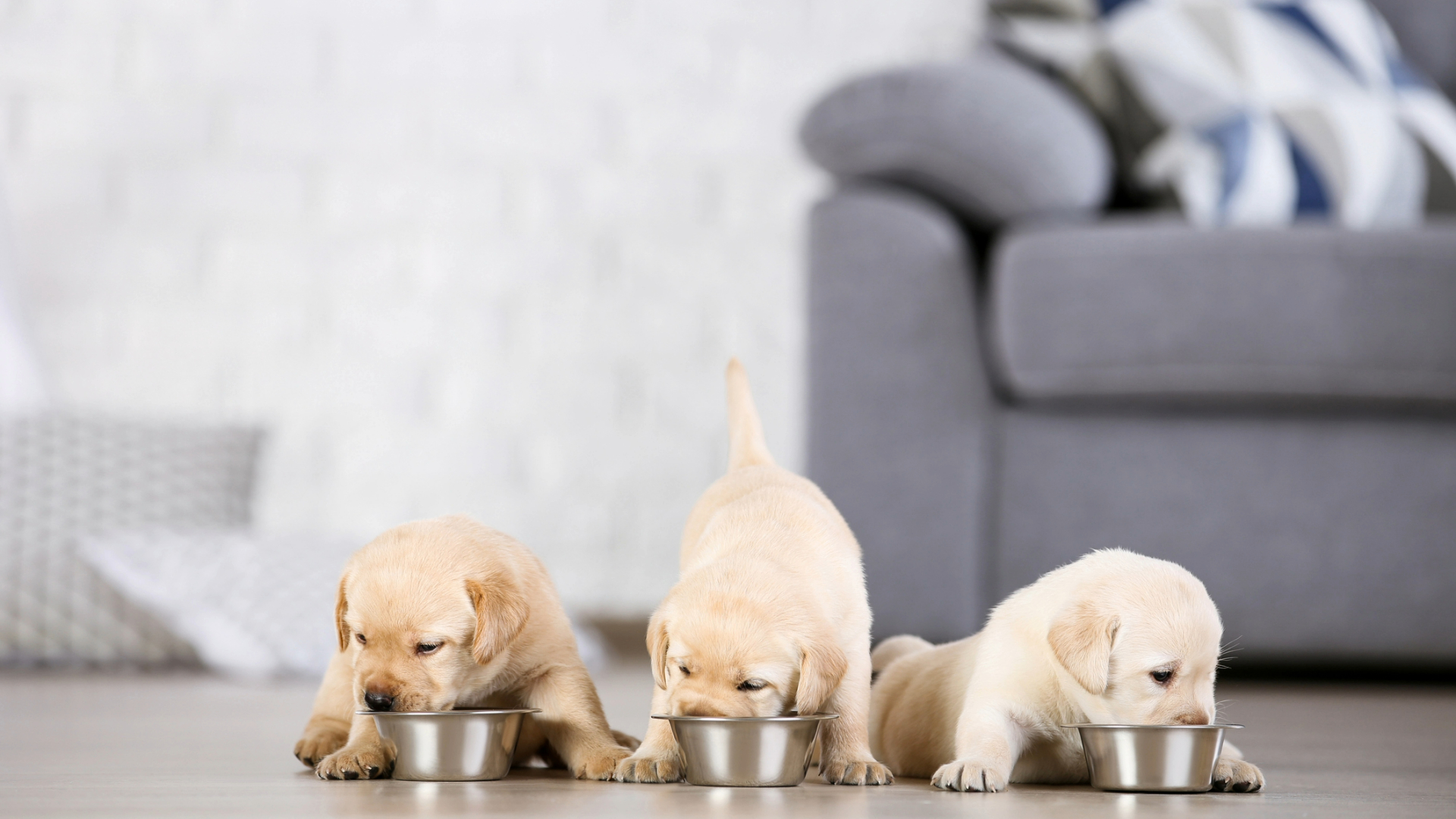
Is homemade puppy food healthy?
Homemade puppy food can absolutely be healthy, but it does require a great deal of thought to ensure it contains everything your fur baby needs to grow up big and strong, including plenty of calories to fuel their body’s development.
One of the biggest mistakes new pet parents make is not understanding that a puppy’s dietary requirements are very different to an adult dog’s. Alongside ensuring they get the right amount of vitamins and minerals, the protein, fat, and carbohydrate content also needs to be correctly balanced.
To ensure your puppy is getting everything they need in the correct ratios, we recommend working with your vet, who will be able to design a healthy diet that will meet the needs of your growing fur baby. They’ll also be able to offer advice and guidance on when to start transitioning your pup over to homemade dog food recipes to meet their adult nutritional requirements.
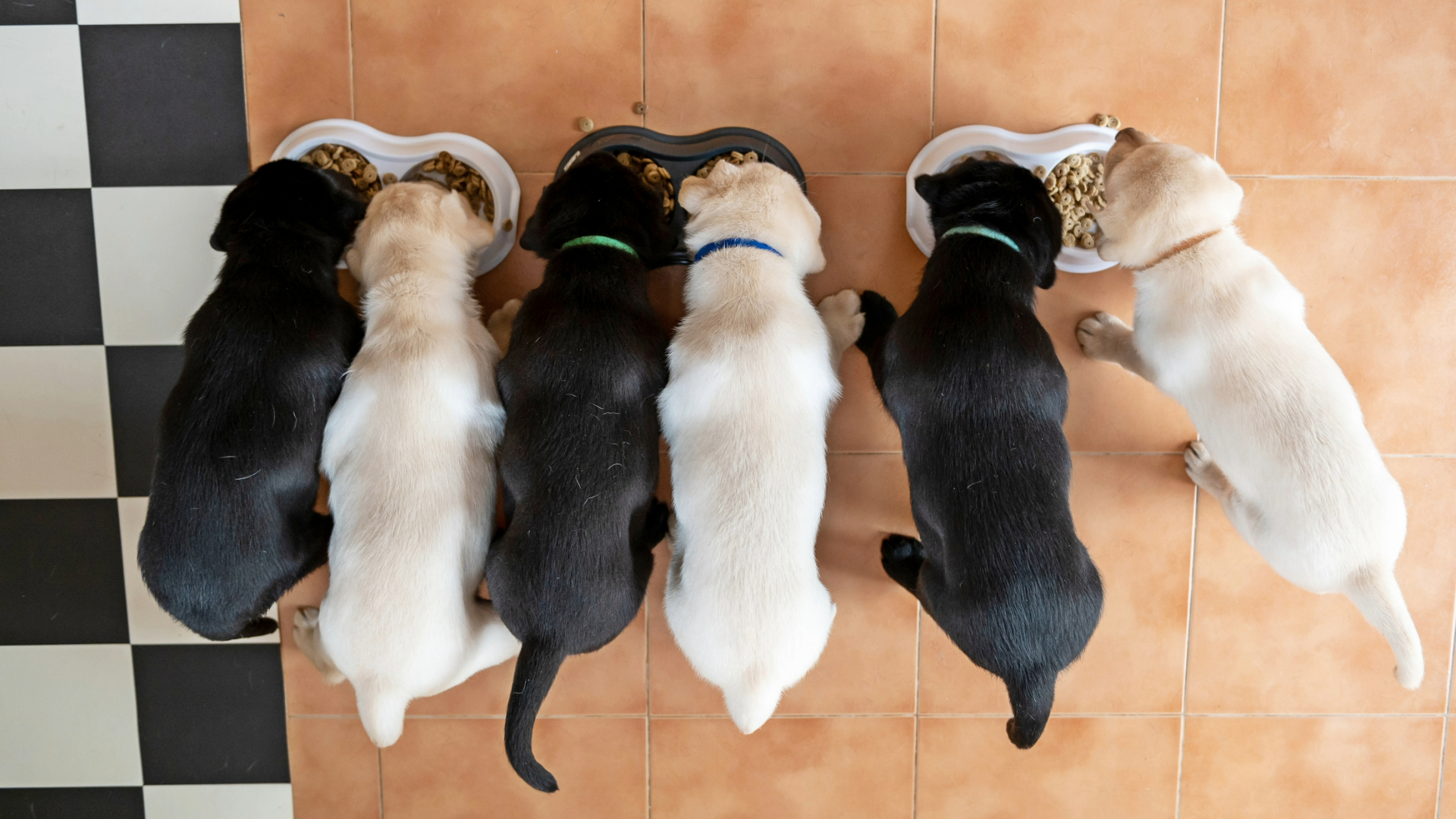
Frisco Silicone Collapsible Travel Bowl with Carabiner
This collapsible travel bowl is perfect for pups on the go and makes feeding time easy when you’re out and about. It’s silicone-free and you can pop it in the dishwasher when you get back home.
How to prepare homemade puppy food
The team at PetCareRx advises that all pet parents follow these nutritional guidelines when preparing meals for their puppy:
| Ingredient | Approximate balance | Options |
| Protein | 40%-80% | Boneless chicken, turkey, lamb, beef, pork, or duck; deboned fish, especially salmon; and eggs which can be cooked with their crushed shells included for extra calcium. Organ meats are very healthy as well but typically should not make up more than 15% of the diet. |
| Fruits and veggies | 5%-10% | Carrots, blueberries, peas, and more. But steer clear of anything poisonous for dogs. |
| Fiber-rich carbohydrates | 20%-60% | Potatoes, both sweet and regular; brown, jasmine, or white rice; peas; lentils; and oatmeal or barley in smaller amounts. |
| Fat | 5%-15% | Poultry skin; rendered poultry fat from cooking; safflower, canola, or soybean oil; or ground flax seeds or flax oil. |
| Vitamins and minerals | Variable | Consider a puppy supplement with plenty of calcium for your growing dog. Consult your veterinarian for recommended brands and dosage. |
When it comes to preparing food, we recommend you set aside a day every month (or a half day once a week if you prefer) and prepare your puppy’s meals in bulk. You can then portion out the meals into containers and freeze them, so that you’ve always got a good supply of pre-prepared meals on hand.
Puppy food can last for several months in the freezer and for up to five days in the refrigerator. If you’re unsure about what an appropriate portion size is for your growing pup, speak to your vet who will be able to advise you.
Waggo Uplift Elevated Ceramic Cat & Dog Bowl
Are you on the hunt for a new dog bowl? This ceramic option by Waggo is a great choice. The elevated design will make dinnertime more comfortable for your pup as it reduces the strain on their neck. It’s also dishwasher safe, saving you the unwanted job of washing up.
Homemade puppy food recipes
If you're looking for some delicious and nutritious homemade puppy food recipes to get you started, here's three of our favorites...
1. Healthy puppy food
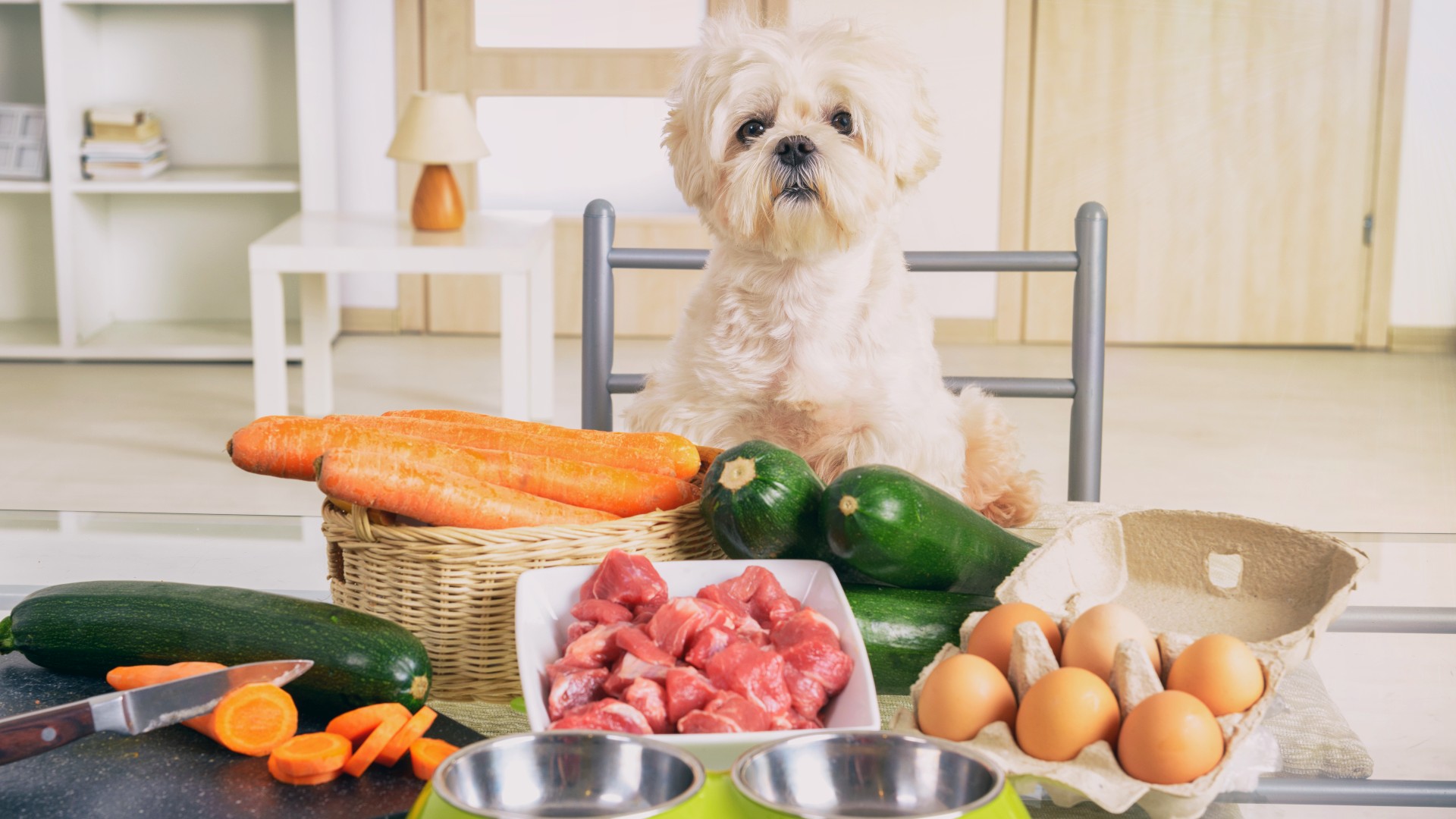
Ingredients:
- 3 lbs ground turkey (or any protein)
- 1 cup uncooked millet (or any other whole grain: quinoa, rice, pasta)
- 1 Tbsp. olive oil
- ¼ cup unsweetened coconut flakes or coconut oil
- 1 carrot, shredded
- 1 zucchini, shredded
- ½ cup pumpkin puree (canned or homemade)
- 1 squash, shredded
- 1 apple, chopped
- A tbsp. of calcium powder
Directions:
- Bring 1 cup of the whole grain to a boil in a pot of water. I overcook it so that it’s soft and easily digestible. Drain.
- While that’s boiling, shred/chop the veggies.
- Cook ground turkey with olive oil and drain excess juices.
- Mix everything! No need to cook the veggies. The cooked turkey and whole grain will warm them up a bit.
- Store in Tupperware or ziplock bags and freeze.
Recipe courtesy of patchpuppy.com
2. Chicken and brown rice puppy food
Ingredients:
- 1 pound boneless, skinless chicken breast
- 1/2 cup UNCOOKED brown rice
- 2 peeled and chopped sweet potatoes
- 2 carrots (chopped)
- 8 ounces frozen peas
- 15 ounces diced tomatoes
- 1/4 cup fish oil
- 1/2 teaspoon iodized salt
- 1 teaspoon dried parsley
- 1.5 cups water
Directions:
- Set your slow cooker to low
- Add all the ingredients
- Cook for 5-6 hours
3. Banana carob oat cake
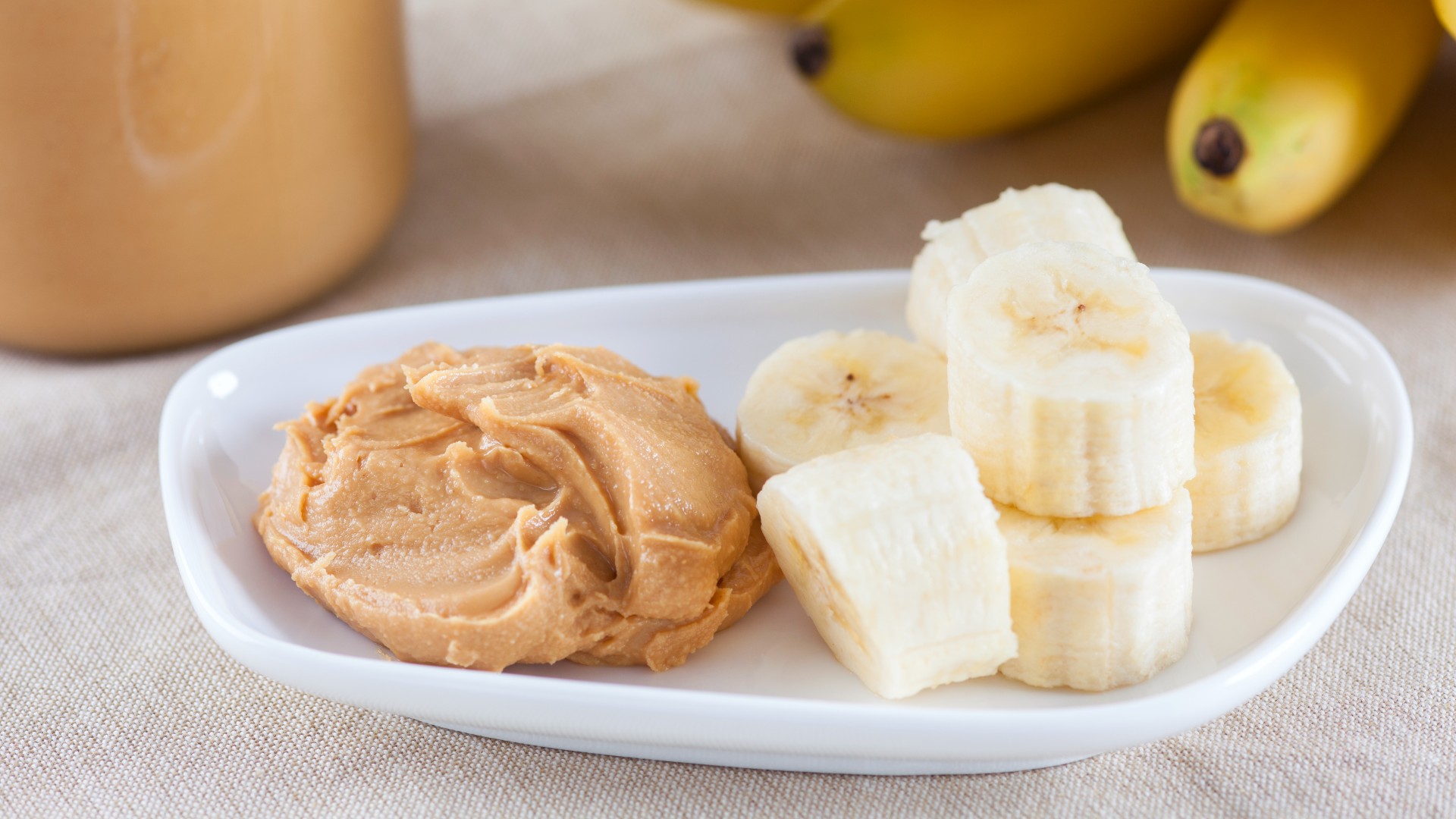
Ingredients:
- 3 cups whole wheat flour
- 2 ripe bananas, mashed
- 4 Tbsp. honey
- 1 egg
- ½ tbsp baking powder
- 1 cup rolled oats
- 2 cups water
- ½ cup carob chips
- 1 cup peanut butter
Directions:
- Preheat the oven to 350 degrees F. Using a nonstick spray, coat an 8-inch cake pan and set aside.
- In a bowl, mix the bananas, 3 tablespoons honey, egg, and water until combined.Then, stir in the flour, baking powder, and oats.
- Pour the batter into the prepared pan and sprinkle the carob chips on top. Use a fork to slightly mix in the carob chips in a marbling fashion; the chips should be slightly visible on the surface.
- Bake the cake for 1 hour. Check and bake for an additional 15 minutes if you insert a toothpick and it does not come out clean. Allow the cake to cool in the pan for 30 minutes before transferring it to a rack to cool completely.
- As the cake is cooling on the rack, mix the peanut butter and remaining honey in a bowl until thoroughly incorporated to create the frosting. Using a spoon or spatula, spread the peanut butter frosting over the cake.
Recipe courtesy of Patch Puppy.
Want to learn more? Check out our guide on the benefits of homemade dog food and what spices can dogs eat.
PetsRadar Newsletter
Get the best advice, tips and top tech for your beloved Pets

Kathryn is a freelance writer who has been a member of the PetsRadar family since it launched in 2020. Highly experienced in her field, she's driven by a desire to provide pet parents with accurate, timely, and informative content that enables them to provide their fur friends with everything they need to thrive. Kathryn works closely with vets and trainers to ensure all articles offer the most up-to-date information across a range of pet-related fields, from insights into health and behavior issues to tips on products and training. When she’s not busy crafting the perfect sentence for her features, buying guides and news pieces, she can be found hanging out with her family (which includes one super sassy cat), drinking copious amounts of Jasmine tea and reading all the books.
